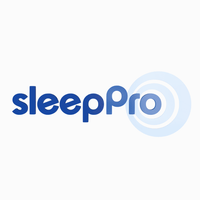
A study recently published in the Journal of Clinical Sleep Medicine indicates that having therapy for Sleep Apnea could potentially have a positive impact on sleep among patients who suffer from hypertension.
President of the American Academy of Sleep Medicine Dr. Timothy Morgenthaler stated, “High blood pressure that is resistant to treatment with medications is a strong warning sign for the presence of OSA, a chronic disease that increases the risk for heart disease and stroke. Over one-third of patients with hypertension and nearly eight out of 10 patients with treatment-resistant hypertension have obstructive Sleep Apnea.
So if you snore heavily, or have severely disturbed sleep where you gasp for air, then don’t ignore it because it will get worse and not go away. Lots of cases go undiagnosed because many people simply aren’t aware they have OSA but their partners will be as they will have observed them stop breathing, and even gasp for air without realising or remembering that they’ve done it. They will suffer from tiredness all the next day as a result.
Sleep Apnea, a potentially severe sleep disease that makes patients stop breathing repeatedly for short periods of time while sleeping, is among the most common diseases that cause pulmonary hypertension. These findings just might explain why sleep apnoea, which causes a person to have one or more pauses in breathing or shallow breaths while sleeping, impairs the quality of life of so many who have high blood pressure.
During the study, researchers discovered a real improvement in daytime sleepiness, depressive symptoms, and fatigue after initiating treatment and even more so in those patients who suffered from resistant hypertension.
A person is classified as having resistant hypertension if they are taking a diuretic and at least two other blood pressure medications, but their blood pressure still isn’t improving. It is generally agreed that if a person is taking multiple medications in a desperate effort to get high blood pressure down, they could be putting themselves at a higher risk for a cardiovascular event.
About 900 patients with Sleep Apnea and hypertension were involved in the study and 15% were confirmed to have OSA in some degree of severity.
Although the authors of the study have indicated that they don’t know of any other previous studies examining changes in sleep function outcomes with PAP therapy in patients with hypertension, there has been research suggesting that OSA and high blood pressure have a definite association.
Experts at the American Academy of Sleep Medicine have suggested that high blood pressure that is resistant to treatment with standard medications is a strong warning sign that Sleep Apnea could be present and that it could increase an individual’s risk for heart disease and stroke. They encourage anyone with high blood pressure to analyse their risk for Sleep Apnea and treat it accordingly.
Mild to moderate versions of Sleep Apnea are now well catered for by the use of a medically approved specialist custom made oral appliance, such as SleepPro Custom. It is similar to a sports guard and is worn when sleeping. It moves the jaw forward slightly which keeps the airway open and lessens the oxygen deprivation, resulting in deeper more rewarding sleep.
Severe OSA needs to be treated with a special breathing mask that supplies oxygen, but may patients reject these due to discomfort and other reasons. They are asked to use an oral appliance if this is the case as treatment of this type is far better than nothing at all. If you’re unsure of what to do then you should discuss it with your Doctor or local Sleep Centre who may wish for you to take an overnight Sleep Test. These are often done at the Centre – but many simpler tests are now available that can be done at home.
Remember that the presence of OSA and high blood pressure makes you more susceptible to heart failure, stroke or sudden death. When diagnosed early, treatment can reduce the symptoms and the risk of early death.


